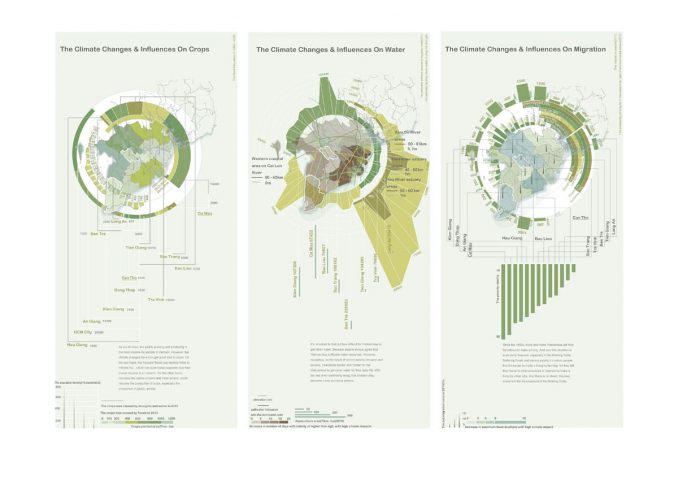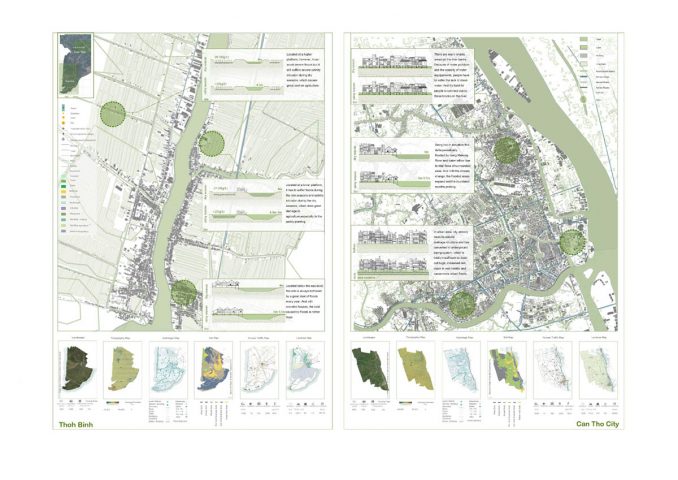
Nowadays, climate change has become much more complicated. Places like the Mekong Delta, which is susceptible to tiny changes, propels people to adapt the climate change quickly and effectively.

The historical record of natural disasters like floods, salinity intrusion, and droughts of each province in Vietnam are analysed. Social factors such as net migration rate, poverty rate, and population density are also considered to show the severe impact of climate change in the Mekong Delta.
Three different attributes are compared: the crops, the water, and the migration. Paddy planting and rice production contribute to the main income of the Vietnamese. Natural disasters like flooding can cause huge losses to these industries. Also, access to clean water becomes hard when disasters strike.
The reasons for migration in the Mekong Delta are analyzed: Mekong Delta has a very high migration rate. Thus, two provinces are selected to be analyzed.

The natural and social factors in the two provinces are examined. Two cities are nominated for their critical issues: The city of Thoh Binh located in Ca Mau is prone to floods and salinity intrusion in the rain and dry seasons respectively, causing huge destruction to the paddy fields and people’s life. Whereas the city Can Tho city in Can Tho is likely to have flooding in both rain and dry seasons. Urban flooding is a severe result of both climate change and bad city planning.

Adaptive and mitigative solutions are proposed for the city of Thoh Binh and Can Tho. A rice-shrimp-cycle in Thoh Binh can help with different climates in both rain and dry seasons to mitigate the current climate-induced problems and meanwhile create more income for people. In Can Tho city, actions like re-planning the agricultural and urban areas, and constructing sluices, the harm caused by floods can greatly reduce the effect in different areas.
Student Project | How cities in Mekong Delta adapt to climate changes | Shiyun Wen
Project Name: How cities in Mekong Delta adapt to climate changes
Students Name: Shiyun Wen
School: East China Normal University
Advisors: Jiao Jian



